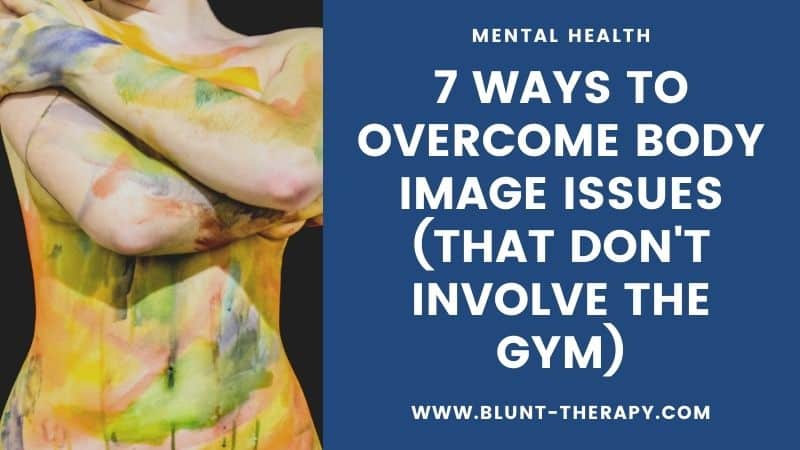Table of Contents
Affiliate link notice: As an affiliate of BetterHelp and other third-party vendors, We will receive compensation if you make a purchase using the links provided on this page. For more information, visit our disclosure page.
Last Updated on December 14, 2021 by Randy Withers, LCMHC
Let’s face it. The holidays are stressful. The problem is that after all the parties have come and gone the stress remains. But with a new year comes a new you and it’s time to get serious about reducing stress.
With one Gallup Poll finding that 55% of Americans feel stressed during their workday, it’s clear that Americans are some of the most over-stressed people on the planet.
Bearing this in mind, let’s take a look at what stress is, what can cause it, and five proven ways to reduce stress.
Let’s start by defining the term. Stress is a normal reaction the body has when changes occur. It can respond to these changes physically, mentally, or emotionally.
Now, Let’s switch gears and talk a little bit about what is happening when stress is present. When we get over-stressed, our amygdala (the part of the brain that controls survival instincts) takes over. That leaves the rest of our brains with less energy to get things done. This makes long term effects of stress memory loss and interference with attention and cognitive brain function.

Time to focus on the signs of stress. More than three-quarters of adults report physical or emotional symptoms of stress. Some signs of stress are:
● Dizziness or a general feeling of disorientation
● Racing heart
● Muscle tension in the neck or shoulder
● Weight loss or gain
● Exhaustion or fatigue
● Indigestion or acid reflux
● Grinding teeth or clenching jaw
● General aches and pains
● Cold and sweaty palms
● Trembling or shaking
● Headaches
● Problems sleeping
● Increase or loss of appetite
What causes stress for one person may not have any effect on another. For example, while some people love the spotlight others are frightened by the idea of standing in front of a crowd. Some people thrive under pressure and others crack.
Let’s look at some things that can cause stress. Some external causes could:
● A major life change
● Being too busy
● Relationship issues
● Loss of a job
● Imprisonment
● Work or school
● Family or children
● Retirement
● Financial issues
● Loss of a loved one
Some internal causes could be:
● Pessimism
● Negative self-talk
● Unrealistic expectations
● Lack of flexibility or rigid thinking
● Inability to accept uncertainty
● An all-or-nothing attitude
Finally, let’s identify 5 scientifically-proven ways to reduce stress in the new year (or any other time for that matter).
A Therapist on BetterHelp can help you learn stress management techniques. Get 10% off your membership when you sign up today.
5 Proven Ways to Reduce Stress in Your Life
1. Talk To Someone
Nearly 3 in 5 adults say they could have used more emotional support in the last year. Making an appointment to see a therapist can be daunting for some, but it’s no different than scheduling a checkup with your doctor. As the commercials say, just do it! A good therapist will help you develop effective coping skills and the tools to recognize what triggers cause you stress.
If therapy is not an option, reach out to trusted friends and family. You’ll find that many people in your life will be happy to listen to you and most will offer help if they can.
Don’t underestimate the power of personal connection. The foundation of many mental health issues, including depression, is a feeling of disconnection from others. The more healthy connections you have, the better you feel. It’s science.
Ask a friend if the two of you can go to the local coffee shop for a chat. Talking about problems in a healthy manner is an excellent way to manage the stress that comes from those problems.
2. Start Exercising Today
People who exercise on a regular basis report lower levels of stress. So, get your body moving! Physical activity is one of the best things you can do to reduce stress.
Not sure what to do or where to begin? Studies show that 20 minutes of brisk walking every day boosts mood and can even prevent depression.
You can do this at work on your lunch break or at home during the commercial break of your favorite television program. 44% of adults say they exercise or walk to manage stress.
What is it about exercise that makes it so effective? Studies show that exercise releases endorphins, which are hormones that your body produces to reduce pain and make you feel calm and happy.
3. Watch What You Eat
Having a healthy diet is important for many reasons. It reduces health risks, both physical and mental. Stress can activate the inflammatory response in the brain and gut, but a healthy diet helps reduce this inflammation.
One of the best things you can do is drink water. Doctors often recommend that you drink eight glasses of water every day, but the truth is that needs vary based on things like gender, weight, and levels of activity.
According to The National Academies of Sciences, Engineering, and Medicine, this is what you need to drink every day:
- Men: 3.7 liters per day (roughly one gallon).
- Women: 2.7 liters a day (roughly 3/4’s of a gallon)
Diet, of course, is also important. Recommendations vary wildly depending on what you read or who you talk to, but you can’t go wrong by doing the following:
- Eat a variety of fruits, vegetables and whole grains.
- Avoid sugar, white bread, and processed foods.
- Drink sodas and other caffeinated beverages in moderation.
- Eliminate fast food from your diet.
- Limit your use of alcohol.
- Pay careful attention to your sodium intake.
- Add foods that are high in fiber.
- Don’t consume trans fats and limit saturated fats.
If you’re not sure where to begin, start with reading the labels on food you buy. Canned and packaged foods show the calorie count, serving recommendations, number of carbohydrates, and types of fat.
A healthy diet helps manage stress because many foods directly affect our mood. Caffeine, for example, is a stimulant that can cause anxiety. Foods high in sodium can raise your blood pressure, too. Alcohol is a depressant. You get the idea.
Moderation is the key to a healthy diet. You don’t need to starve yourself to feel better. Just pay more attention to what you put in your belly.
4. Make Sure You Get enough Sleep
It’s often difficult to sleep when you are stressed out and thinking about everything you have to do in the morning. But sleep is vital for stress management. The problem is, most adults are chronically sleep-deprived.
Consider the following:
- More than 1 out of every 3 Americans fail to get the recommended seven hours of sleep each night.
- Americans currently average 6.8 hours of sleep each night.
- By comparison, a century ago the average person slept 9 hours a night.
- Roughly 20% of Americans have a sleep disorder.
- Over the past 30 years, the percentage of adults who get less than six hours of sleep increased by 31%.
- 97% of teenagers get less than the recommended amount of sleep.
- Sleep deprivation costs the US $411 billion annually in terms of lost productivity and healthcare.
Quality of sleep matters as well. Poor sleep habits can affect your mood, energy levels, concentration, as well as overall functioning.
One of the best things you can do is follow a sleep schedule. Try to go to bed at the same time every night, and try to wake up at the same time every morning.
It’s also wise to put your phone away and turn the TV off at least one hour before bedtime. Electronic devices stimulate the brain and make it harder to fall asleep.
5. Reduce The Number of Stressors in Your Life
We put a lot of demands on ourselves with unrealistic timelines. Keep it manageable by taking time to think about what the project or activity is before accepting it.
Effective time-management skills involve asking for help when appropriate, setting priorities, pacing yourself, and taking time out for yourself. These are proven ways to reduce stress, but only if you follow them.
Learning to say “No,” for many, is a challenge. But it is a challenge that needs to be overcome. You only have so much time in a day. Reasonable people understand this and will understand if you say no to requests that you are unable to honor. It’s also okay to say no to things you don’t want to do. This may not always be the case at work, but it is usually the case in life.
Set boundaries for yourself. People who find themselves overwhelmed with responsibility often have poor personal boundaries and take on more than they can handle.
Here are some tips to start reducing the number of stressors in your life.
- Don’t take work home with you. If you are paid to work from 8-5 on Monday through Friday, don’t work in the evenings and don’t work on the weekends. You don’t have to have an excuse. Your time is your time.
- Learn to recognize when your plate is full. There are only so many minutes in a day. Use them wisely.
- Limit the number of times you check your email to three times a day. Emails never stop and constantly checking them can make you feel overwhelmed at times.
- Some people in your life are leeches who take but never give. Identify these people and phase them out of your life. They do not add value; they only drain your energy and time.
- Set aside at least one evening and one day per week to engage in self-care. Have a movie night. Sit on the couch and watch Netflix. Go on a day trip. Do whatever you want – you’ve earned it!
Conclusion
Reducing stress in 2022 is not only a great new year’s resolution but a great way to reduce health risks in general. Wile you might not be able to implement all five of these suggestions, any one on the list will provide considerable relief.
It takes between 4-12 weeks to start or break a habit, so give yourself time to adjust. In the beginning, your brain will naturally push back against the brain. But with consistency, you’ll find that every day it gets a little easier. And then one day you’ll wake up and realize that the new habits you’ve started have become a normal part of your routine.
References:
- 16 Simple Ways to Relieve Stress and Anxiety
- Tips For Managing Stress
- 17 Highly Effective Stress Relievers










It usually recommended preserve a journal to aid in fighting with anxiety disorder.
The general rule of thumb: with kids, it’s better safe than sorry.
But it’s a process that can take time.